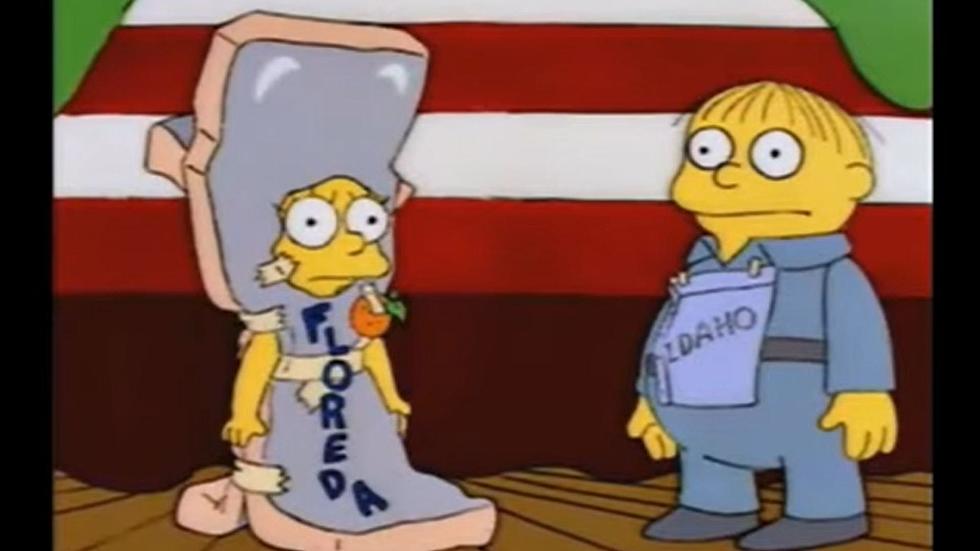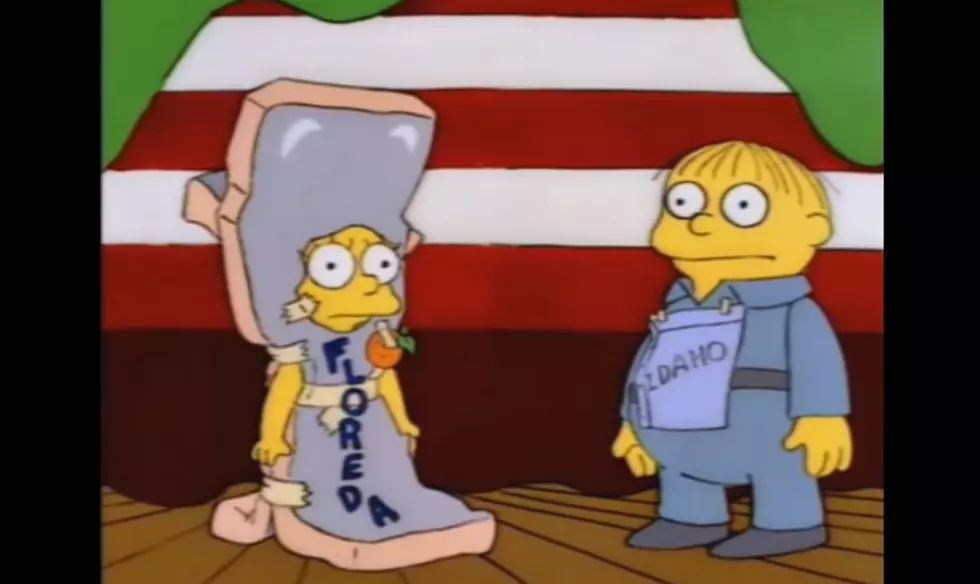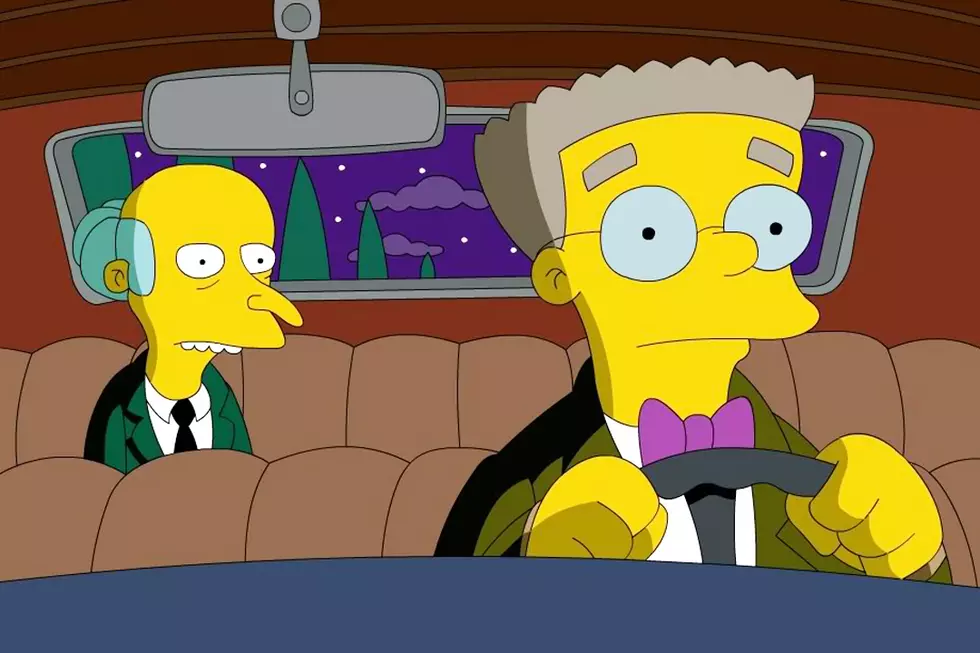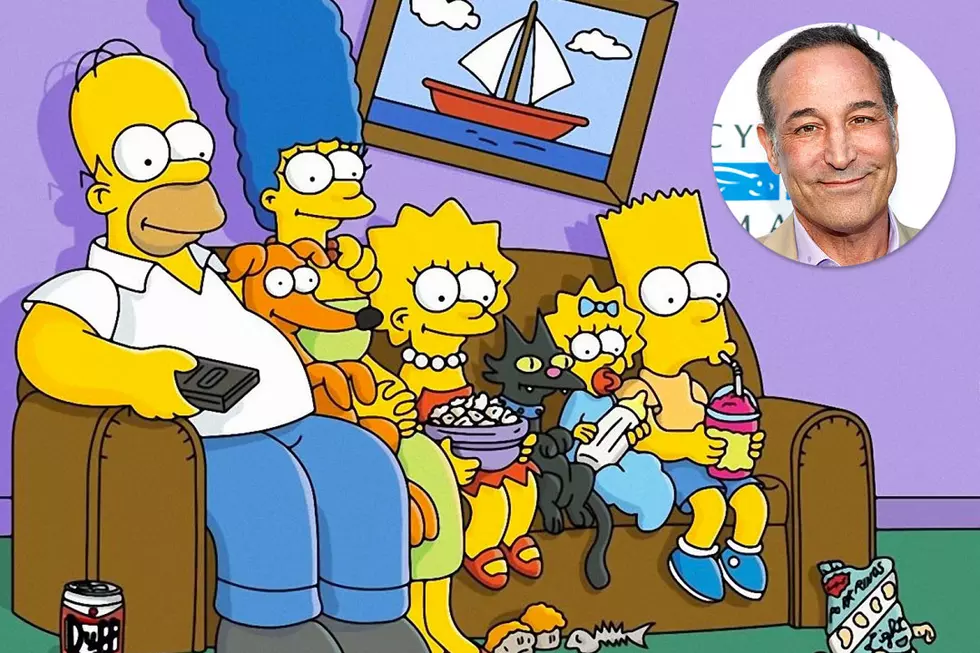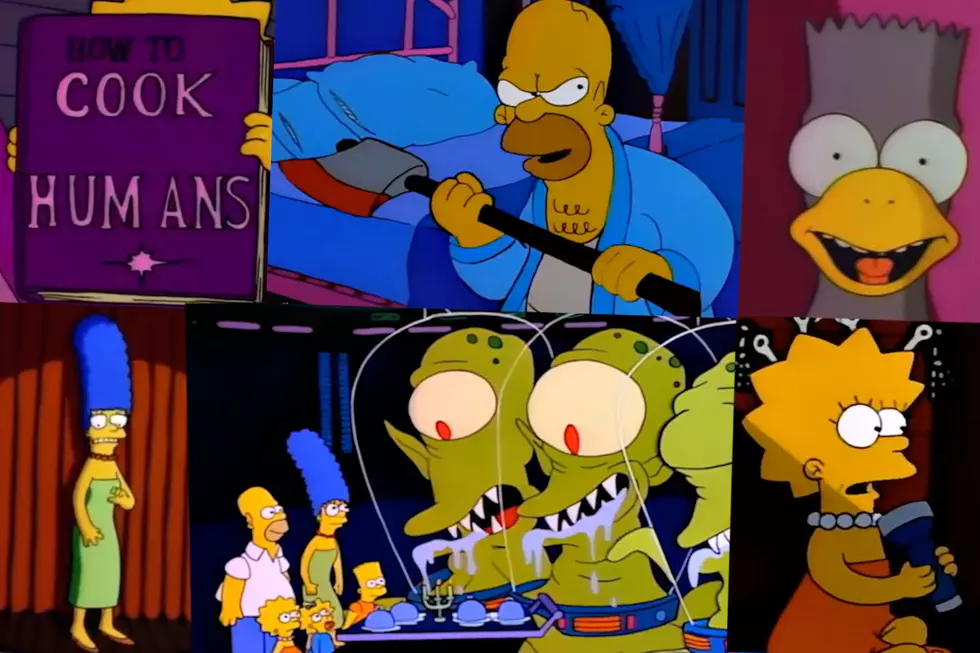
30 Years Ago: ‘The Simpsons’ Airs Its First ‘Treehouse of Horror’
On Oct. 25, 1990, The Simpsons unleashed its first "Treehouse of Horror" episode, launching a Halloween television tradition.
When formulating their concept, show creator Matt Groening and showrunner Al Jean took inspiration from EC Comics. The comic book brand - known as the creators of Tales From the Crypt - was popular in the ‘50s thanks to their horror and sci-fi publications.
“The idea of it to parody EC Comics was really original and kind of shocking for a cartoon on network television,” Jean recalled in a 2011 conversation with Entertainment Weekly. “[Executive producer] Jim Brooks said, 'We better have a disclaimer at the beginning of this Halloween show,' so Marge came out and warned people that they were going to see something scary. And the funny thing is it's now very tame by our Halloween standards and by network animation standards.''
Watch Marge's Warning at the Beginning of the First 'Treehouse of Horror'
Writers saw "Treehouse of Horror" as an opportunity to have the Simpsons’ characters do things that were far too violent for a regular episode. Murder, blood, gore - everything was fair game thanks to Halloween.
“We get to break the rules and have the characters chop each other's heads off," Groening explained in the DVD commentary to The Simpsons Season Two. "And I think there is a cathartic thing that the writers get, being able to make the characters do all sorts of horrible things.”
Originally dubbed "The Simpsons Halloween Special," the episode used Bart and Lisa as narrators for three distinctive horror-themed vignettes. The stories were based around the guise that the siblings were telling each other scary tales in their backyard treehouse. Notably, the first "Treehouse of Horror" would be the only edition to use the family’s treehouse as a setting.
The first segment, titled "Bad Dream House," would infuse elements of such classic horror films as Poltergeist, The Amityville Horror and The Shining. The story found the Simpsons moving into a new house, only to discover it is haunted. Paranormal activity abounds as the home’s walls bleed and a voice from within urges the family to kill each other.
Marge eventually confronts the house, shaming it for bullying her family and demanding it change its evil ways. “This is my family and we’re not going anywhere,” the Simpson matriarch declares. “We’re all going to have to live together so you’d better get used to it.” The home, now seeing that it cannot scare its occupants away, asks for a moment to ponder Marge’s demands. After only a few seconds imagining life with the Simpsons, the house destroys itself, ending the vignette.
Watch 'Bad Dream House' from 'Treehouse of Horror I'
The second segment would be 'Hungry Are the Damned,' a story that saw the Simpsons abducted by aliens and brought aboard their spaceship. The scene introduced Kang and Kodos, two extraterrestrial beings who would go on to appear in every "Treehouse of Horror" episode. Writers Jay Kogen and Wallace Wolodarsky came up with the characters’ distinctive design, describing the aliens as looking “like an octopus in a space helmet.”
Kang and Kodos explain that they are taking the Simpsons to their home planet, a paradise-like place where the humans will be greeted as the guests of honor at a “great feast.” The family is treated like royalty on board the intergalactic flight, including being served an abundance of delicious food. Suspicious of the aliens’ intentions, Lisa snoops around the spaceship, her discovery leading to one of the episode’s most famous gags.
Lisa finds a cookbook labeled “How to Cook Humans,” presenting it to her parents and declaring that the aliens plan to eat the family. Kang denies the accusation, blowing “space dust” off the cookbook’s cover to reveal the title “How to Cook for Humans.” Lisa then proceeds to blow more dust off, revealing the title “How to Cook Forty Humans.” Finally, Kang blows one more time, the title reading “How to Cook for Forty Humans.” Outraged that the Simpsons accused them of murderous intentions, the aliens return the family to Earth.
Watch the "How to Cook Humans" Gag from 'Treehouse of Horror I'
The third and final vignette of the first "Treehouse of Horror" was "The Raven," an earnest retelling of the famous Edgar Allan Poe poem. Groening knew that taking on such classic material was a risk for the show. “I was so frightened that this was going to be the worst, most pretentious thing that we’d ever done,” the creator admitted in The Simpsons Season Two DVD, adding that his initial response to the segment was, “Oh no! Where are the gags?!”
Still, "The Raven" became a hailed achievement for The Simpsons, proving the animated series could mix intellectual work like Poe’s into their own world. The story was narrated by James Earl Jones, who also had cameos in the episode’s previous segments, and featured Homer as the poem’s lead character, plagued by an ominous blackbird, animated to look like Bart.
“This was given the seal of approval by my snotty, intellectual New York friends,” Groening proudly declared in The Simpsons Season Two DVD commentary. “If we can please one snotty, New York intellectual, we’ve done our jobs,” Jean jokingly added.
Watch 'The Raven' From 'Treehouse of Horror I'
More than 27 million viewers tuned in to the first "Treehouse of Horror," making it the third most-watched Simpsons episode that season.
The original "Treehouse of Horror" was also notable for being the first episode to feature music by Alf Clausen, the composer who would become a permanent fixture on the show through the end of season 28. Clausen’s contributions to the show, both in its score and various musical numbers, would be a key element to The Simpsons' ongoing success, earning the composer multiple Emmys in the process.
The first "Treehouse of Horror" has further been cemented in history as one of the benchmarks of The Simpsons’ television dynasty. TV Guide and The Guardian are among the outlets to name the episode among the greatest in the show’s history.
36 Rock Star Moments From 'Family Guy'
More From 98.3 The Snake

